College of Education faculty have been busy publishing their research and ideas. Check out these recently published books authored and edited by some of our faculty:
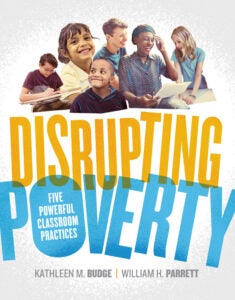
Kathleen Budge, Department of Curriculum, Instruction, and Foundational Studies, and Bill Parrett, Department of Curriculum, Instruction, and Foundational Studies
Budge, K. & Parrett, W.H. (2018). Disrupting poverty: Five powerful classroom practices. ASCD: Alexandria, VA.
Kathleen M. Budge and William H. Parrett dispel harmful myths, explain the facts, and urge educators to act against the debilitating effects of poverty on their students. They share the powerful voices of teachers—many of whom grew up in poverty—to amplify the five classroom practices that permeate the culture of successful high-poverty schools: (1) caring relationships and advocacy, (2) high expectations and support, (3) commitment to equity, (4) professional accountability for learning, and (5) the courage and will to act. Readers will explore classroom-tested strategies and practices, plus online templates and exercises that can be used for personal reflection or ongoing collaboration with colleagues. Disrupting Poverty provides teachers, administrators, coaches, and others with the background information and the practical tools needed to help students break free from the cycle of poverty.
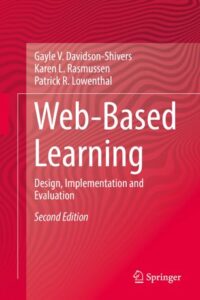
Patrick Lowenthal, Department of Educational Technology
Davidson-Shivers, G. V., Rasmussen, K. L., & Lowenthal, P. R. (2018). Web-based learning: Design, implementation, and evaluation. New York, NY: Springer.
This second edition is a practical, easy-to-read resource on web-based learning. The book ably and clearly equips readers with strategies for designing effective online courses, creating communities of web-based learners, and implementing and evaluating based on an instructional design framework. Case examples, case studies, and discussion questions extend readers skills, inspire discussion, and encourage readers to explore the trends and issues related to online instructional design and delivery.
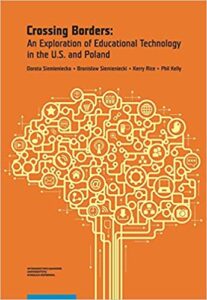
Phil Kelly, Department of Curriculum, Instruction, and Foundational Studies, and Kerry Rice, Department of Educational Technology
Rice, K. L., Siemieniecki, D., Siemieniecka, B., & Kelly, P. P. (2017). Crossing borders: An Exploration of educational technology in the U. S. and Poland. Nicolaus Copernicus University.
The evolution and praxis of U.S. and Polish educational systems are juxtaposed in a discussion of technology-supported learning in the context of historic determinants, educational policy, and past and emerging practice. Both the research presented and examples of student works and projects help answer questions about the shape of future technology supported educational systems, frame the challenges education is facing, and present perspectives for future development.
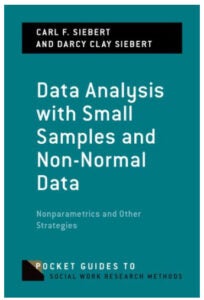
Carl Siebert, Department of Curriculum, Instruction, and Foundational Studies
Siebert, C. F., & Siebert, D. C. (2017). Data analysis with small samples and non-normal data: Nonparametrics and other strategies. Oxford University Press.
In social sciences, education, and public health research, researchers often conduct small pilot studies (or may have planned for a larger sample but lost too many cases due to attrition or missingness), leaving them with a smaller sample than they expected and thus less power for their statistical analyses. Similarly, researchers may find that their data are not normally distributed — especially in clinical samples — or that the data may not meet other assumptions required for parametric analyses. In these situations, nonparametric analytic strategies can be especially useful, though they are likely unfamiliar. A clearly written reference book, Data Analysis with Small Samples and Non-Normal Data offers step-by-step instructions for each analytic technique in these situations.
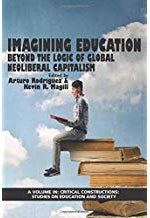
Arturo Rodriguez, Department of Literacy, Language, and Culture
Rodriguez, A. (2017). Imagining education: Beyond the logic of global neoliberal capitalism. Charlotte, NC: Information Age Publishing.
Given the current social climate this book interrogates capitalism’s relationships to and influence on education. More importantly, this book is part of a greater effort to re‐humanize society by generating dialogue, encouraging solidarity and providing analyses of power and avenues for agency in supporting a life beyond the logic of the state and its implied structure, global neoliberal capitalism. The authors speak to the conceptual and material manifestations of neoliberalism that order education.
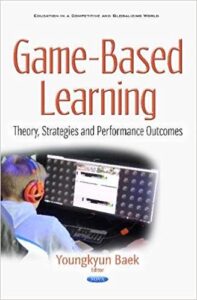
Youngkyun Baek, Department of Educational Technology
Baek, Y. (2017). Game-based learning: Theory, strategies and performance outcomes. New York: Nova Science.
At a time when digital games are becoming much more commonly used in classrooms, this book provides a much-needed guide to different forms and applications of digital game-based learning. The book brings together researchers and practitioners from around the world who share their theories, strategies, findings of case studies, and practical approaches to support better performance and learning outcomes when learning with digital games.
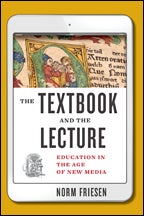
Norm Friesen, Department of Educational Technology
Friesen, N. (2017). The Textbook and the Lecture: Education in the Age of new Media. Baltimore: Johns Hopkins University Press
Why are the fundamentals of education apparently so little changed in our era of digital technology? Is their obstinate persistence evidence of resilience or obsolescence? Such questions can best be answered not by imagining an uncertain high-tech future, but by examining a well-documented past—a history of instruction and media that extends from Gilgamesh to Google. Norm Friesen looks to the combination and reconfiguration of oral, textual, and more recent media forms to understand the longevity of so many educational arrangements and practices.